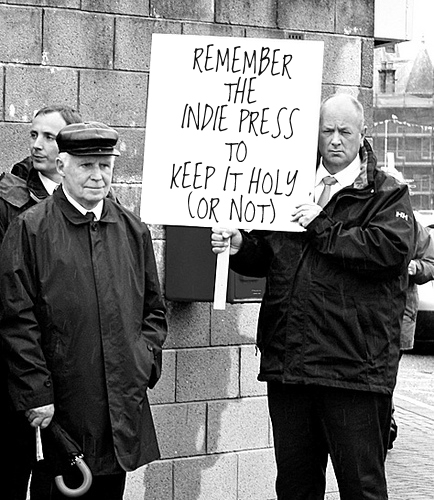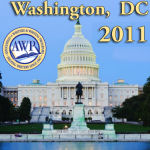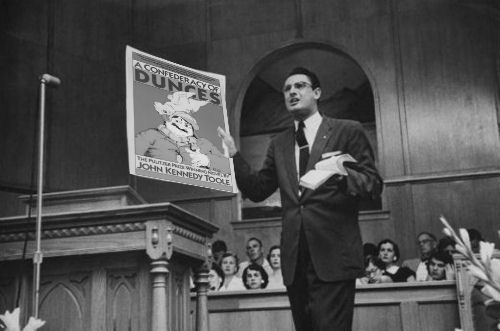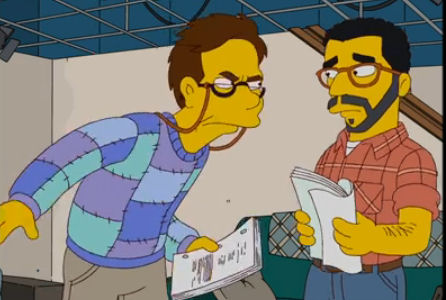Michael Sonbert reads from his forthcoming novel We Are Oblivion at The Velvet Lounge, Washington D.C, 2/3/11
Posts By Caleb J. Ross
Nik Korpon reads from his novel Stay God at The Velvet Lounge, Washington D.C, 2/3/11
Brandon Tietz reads a short story at The Velvet Lounge, Washington D.C, 2/3/11
Between February 2nd and 5th I will be attending the AWP (Association of Writers and Writing Programs) Conference in Washington DC. During this time I'll be temporarily relocated. Check often at the following places, where I (and a team of writers) will be reporting on the happenings at the conference all week. Be sure to subscribe to the blog, YouTube channel, and Podcast feed, and follow the Twitter stream. My AWP Blog (www.calebjross.com/awpblog) Expect summaries of panels and daily roundups of general goings-on AWPtweets (http://twitter.com/awptweets) As the majesty of Twitter has allowed and encouraged, expect disposable minutia here AWP Channel (www.youtube.com/awpchannel) While I would love to upload videos of every reading and panel discussion I attend, I assume AWP would have some copyright issues with that. So, expect instead videos of selected readings and perhaps a few quick interviews from the book fair floor. We'll see. The Velvet Podcast (www.thevelvetpodcast.com)…
Can you talk about a single book for one hour every week? Ministers/Priests/Pastors/Reverends/Etc. do. Why shouldn’t more books get the attention that religion texts do? Okay, most books don’t have a centuries-long history, a following (even a lukewarm one), or a cultivated lifestyle (excluding the Twilights and Harry Potters). What most books do have in common with religion texts is an industry infrastructure built to support their messages and the text itself; compelling narrative for the ultimate goal of better understand the human condition. But week after week after week…how? Religious clergy have the amazing ability to use a single book as a point of reflection for EVERYTHING, from contemporary world events to domestic irritants. Natural disaster? War? Impoverished country? Acne? Grab a Bible, right? Why not grab The Confederacy of Dunces or House of Leaves? Each has interesting characters. Each depends on the reader’s own moral scope for impact.…
(part of my ongoing Unexpected Literary References series) More Unexpected Literary references from The Simpsons. Surprised? You shouldn’t be. Okay, The Simpsons, time to step aside and let some other cartoon be the smarty-pants lit reference show. You’ve been the hipster long enough. Your gags are disproportionately literary-based, and for that The Simpsons, I would appreciate more fart jokes. By now you are probably thinking, “wait, I thought you loved lit references in cartoons.” Good call you. Playwright David Mamet makes an appearance as the dumped-on sitcom screenwriter for the fake 80s Growing Pains derivative Thicker Than Water. Mamet is perhaps most famous for his 1984 Pulitizer Prize winning play, Glengarry Glen Ross. What many might not know (but The Simpsons writers surely did) is that Mamet wrote a 1987 episode of the TV drama Hill Street Blues and is also an oft-writer of the television series The Unit. I hope…
 Honestly, when in the company of commercial press authors, defending my place as independent press author can be difficult. To those who have “made it” into the commercial presses, I would assume my defense comes across not nearly as articulately and convincingly as I would hope. Afterall, the examples of small press authors immigrating into the world of commercial presses far outweighs the number of commercial authors willing to emigrate to the small press world. The commercial press gatekeeper is much more discriminating than the indies; I understanding the disbelief. I too would go commercial if given the right opportunity.
But things are getting easier. Not only are small press books showing face on historically commercial press-dominated shortlists (the recently announced 2010 National Book Critics Circle award finalists includes quite a few small press titles), but with the help of Jane Friedman the various publishing paths have been defined, and by extension, validated.
In the summary of her Writers Digest Conference 2011 talk on publishing options Friedman very clearly explains what she sees as the basic three options for publishing:
Honestly, when in the company of commercial press authors, defending my place as independent press author can be difficult. To those who have “made it” into the commercial presses, I would assume my defense comes across not nearly as articulately and convincingly as I would hope. Afterall, the examples of small press authors immigrating into the world of commercial presses far outweighs the number of commercial authors willing to emigrate to the small press world. The commercial press gatekeeper is much more discriminating than the indies; I understanding the disbelief. I too would go commercial if given the right opportunity.
But things are getting easier. Not only are small press books showing face on historically commercial press-dominated shortlists (the recently announced 2010 National Book Critics Circle award finalists includes quite a few small press titles), but with the help of Jane Friedman the various publishing paths have been defined, and by extension, validated.
In the summary of her Writers Digest Conference 2011 talk on publishing options Friedman very clearly explains what she sees as the basic three options for publishing:
- Tradition
- Independent or niche presses
- Self-publishing/DIY publisher
Pros, Cons, and Requirements: Traditional publishing:Hell, just read the original post.Small/independent press:
- It’s a commercially-driven business
- Competitive – many people are trying to break in
- National distribution – your work needs to merit that
- Slower to market (usually)
- Not the time to experiment
- Persistence & patience
- For non-fiction: you need a platform
DIY:
- Weaker distribution, smaller print run
- More personal attention, dedication
- Usually less money
- Niche marketing – smaller, specialized market; they’re experts in the field
- More accepting of “art” (could be nonprofit), more service-minded
ALL of the options actually require energy to market and promote. It all boils down to you – your strengths, your work, your readers – to determine what’s best.
- Entrepreneurial spirit
- Direct connections with readership (for sales)
- Must be comfortable with technology
- Must enjoy connecting with people (online and off)
- Requires energy to market and promote



